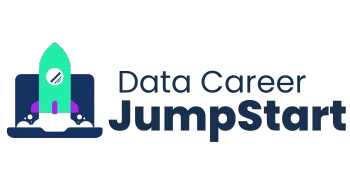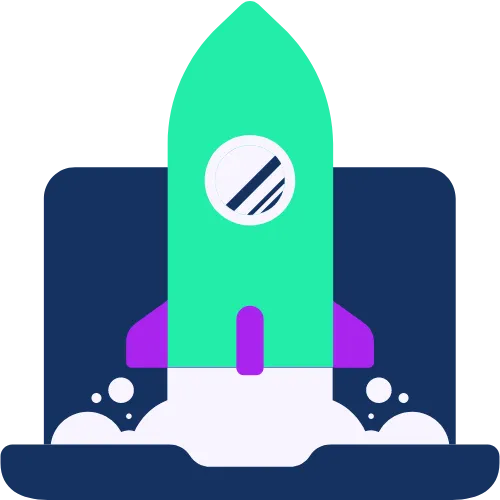
💡 Hiring Manager Explains: How to Become a Healthcare Analyst
I had the chance to sit down and interview Jason Bryll, a healthcare analytics specialist and create a complete guide to getting starting with healthcare analytics. Enjoy!
What is Healthcare Analytics?
Healthcare analytics is any use of data to make smarter healthcare (and healthcare related) decisions. It’s centered around any raw medical data and its related administrative data to improve patient outcomes, reduce costs, and improve healthcare operations.
There are 3 main types of healthcare analytics. (And it’s rare you’d do all 3 - usually you focus on just one).
Clinical Analytics: The actual “healthcare” part of healthcare analytics. Diagnoses, treatment codes, procedure documentation to better understand patient care patterns and outcomes.
Operational Analytics: Think day-to-day logistics of a healthcare clinic. How many patients does a doctor see? How long do patients have to wait? etc.
Financial Analytics (Revenue Cycle): All about analysis of data centered around insurance claims processing, billing, collections, and timely payments (or lack thereof).
You could also add a bonus fourth type of Population Health Analytics which looks into health trends across groups of people. Think like COVID or malaria analysis from a global view.
From my (and even Jason’s) experience, the majority of healthcare analytics occurs in the operations and financial side for some reason. Let’s be honest, we all know the reason…$$$.
What does a Healthcare Analyst do?
Healthcare analysts do a lot of different tasks, but here’s a few examples:
Find interesting trends in scheduling for a local dentist practices (no-shows, busy periods, running late, etc).
Create a real-time dashboard for an emergency room, showing wait times and patient flows.
Revenue cycle analysis to spot delays or common denials in insurance payments.
Predict staffing needs (how many nurses and doctors do we need) based on historical data and upcoming flu season.
You can listen to my podcast episode with my student, Melody Santos, who went from physical therapist to healthcare analyst to get more of an idea about the day to day.
What Skills Should I Learn to be a Healthcare Analyst?
Jason suggests learning Excel, SQL, and a BI tool (Tableau or Power BI) to become a data analyst. Not all that different from what I’ve talked about in the past. These are the three skills to focus on to make it in the data world!
Jason used Excel a lot in his career to do healthcare and financial analysis. It’s a workhorse of healthcare analytics. But SQL has been really useful later in his career for both combining data sets and analyzing large data sets. Then using a business intelligence tool, helps bring that analysis to life.
Notice, no Python. No R. No machine learning. Keep it simple, folks.
Is Healthcare Analytics Right for me?
If you enjoy finding data insights in healthcare, financial, or operations data, this could be for you! Bonus points if you already have worked in the healthcare industry. Nurses, physical therapists, lab techs, etc, all understand the domain of healthcare. You know the lingo. You understand the practices. This gives you a huge advantage! Consider this your formal “come join the data world” invitation!
Will AI Replace Healthcare Analysts?
AI is only becoming a bigger and bigger part of analytics, will it replace healthcare analysts? I think that’s the wrong question, stemming from fear. I think the right question is something along the lines of, “how can AI make me a better analyst?” Jason and his team are using AI a lot to do things like write SQL code. It’s increasing their productivity for sure, but it isn’t perfect.
We still need people who understand SQL to make sure that AI is actually doing the code correctly. Also, Jason and I talked about how AI will make domain knowledge more important. AI will kinda equalize a lot of analysis skills - they might become a bit of a commodity. So what truly differentiates a data professional? Their soft skills and their depth of knowledge in the industry.
Your analysis is only as useful as it is used. If you analyze data without affecting the business, you have done so in vain. The more you know the business, the more impact both you and your analysis can have.
How to Pivot into Healthcare Analytics
If you want to break into healthcare analytics, it’s going to take a few things. Of course, you’re going to have to learn the skills of Excel, SQL, and a data viz tool. But that’s the requirement - it’s not what makes you stand out.
Your domain experience will make you stand out. I once had a hiring manager tell me, “I can teach them how to analyze data, but teaching them the domain is much harder.”
A portfolio helps you stand out. Jason talks about how he looks at portfolios before anything else on a resume. But your projects shouldn’t just be a screenshot or some code. It should be a complete write-up or video showcasing your entire analytical thought process. This helps hiring managers know if you can actually do what your resume says you can. Btw, we make 9 of these types of projects in The Accelerator.
And finally, niching down can help you stand out. If you focus ONLY on healthcare analytics and study and build projects exclusively on healthcare analytics, you’re different. And being different, you’ll stand out in an application pool.
If you want to learn Excel, SQL, and a data viz tool…
If you want to build a portfolio that will make you a recruiter magnet…
And if you want to niche down and stand out…
Consider The Accelerator. This is my data bootcamp where I teach you all the skills, all the projects, all the portfolios, all the resumes, and all the LinkedIn you need to know to land a job. New cohort starting soon.
And if you’re considering healthcare analytics, consider Jason’s healthcare analyst course. It’s not a comprehensive program like The Accelerator. It’s a healthcare analyst deepdive. You’ll learn what it’s like to be a healthcare analyst. I’m an affiliate partner of the program as there’s really nothing as niche as it out there.
Hope this helps!✌️ 👉
Let me know what questions you have!


